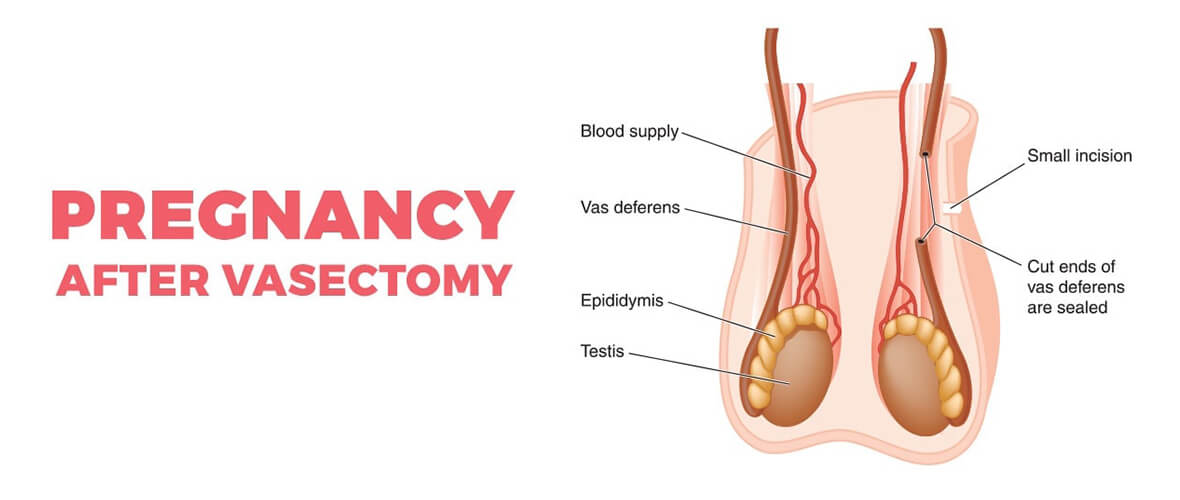A vasectomy is a procedure that many married couples choose as a form of birth control. This is a procedure similar to tubal ligation for women where the reproductive tubes are severed and tied off. It is commonly referred to as “having your tubes tied.” A vasectomy is a procedure in which the vas deferens is severed and tied off, preventing sperm from reaching the egg. This is performed as a permanent form of birth control, which leads some to ask if pregnancy after vasectomy is possible.
Is Getting Pregnant After a Vasectomy Possible?
A vasectomy is one of the best ways to prevent pregnancy, with rates of pregnancy around 1/1,000 after the first year, and between 2-10/1,000 after five years. Most reports indicate that following a vasectomy a couple has a less than 1% chance of getting pregnant.
However, it is recommended to have an analysis of a semen specimen after vasectomy (SSAV) to determine the success of the procedure before ceasing to use alternative methods of contraception. Although the possibility of becoming pregnant following a vasectomy is low, the possibility is still there. If your partner is experiencing pregnancy symptoms, she may consider taking a pregnancy test.
Vasectomy Reversal
As noted earlier, a vasectomy is considered a permanent form of birth control. However, in the same way, that a woman can undergo surgery for tubal ligation reversal, a man can have a vasectomy reversal surgery if a couple decides to try to conceive. Nonetheless, a reversal of a vasectomy does not ensure that pregnancy can be achieved.
Want to Know More?
- SpermCheck Post-Vasectomy Home Sperm Test Kit
- Male Fertility Testing
- Male Infertility: Causes, Treatment and Prevention
Compiled using information from the following sources:
1. Indian J Urol. 2007 Jan-Mar; 23(1): 6–8.
https://www.ncbi.nlm.nih.gov/pmc/articles/PMC2721499/
2. John Hopkins Health Library
https://www.hopkinsmedicine.org/healthlibrary/test_procedures/gynecology/tubal_ligation_135,27/
3. The Society of Obstetricians and Gynaecologists of Canada
4. Beckmann, C. (2010). Obstetrics and gynecology (6th ed.). Philadelphia, PA: Lippincott Williams & Wilkins.






